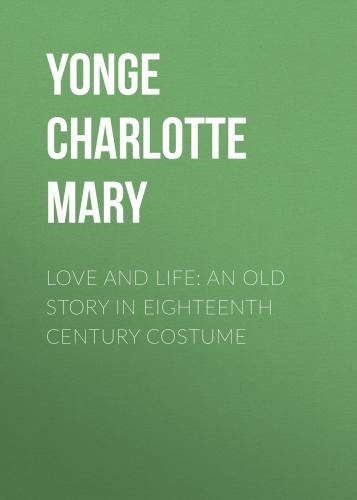The triad were not much alike: Amoret was the largest of the three, plump, blue-eyed, golden-haired, rosy-cheeked, a picture of the cherub-type of child; Letitia had the delicate Delavie features and complexion; and Fidelia, the least pretty, was pale, and rather sallow, with deep blue eyes set under a broad forehead and dark brows, with hair also dark. Though the smallest, she was the most advanced, and showed signs of good training. She had some notion of good manners, and knew as much of her hornbook [a child’s primer consisting of a sheet of parchment or paper protected by a sheet of transparent horn—D.L.] and catechism as little girls of five were wont to know. The other two were perfectly ignorant, but Mrs. Aylward procured hornbooks, primers, and slates, and Aurelia began their education in a small way.
It was a curious life. There was the great empty house, through whose long corridors and vacant rooms the children might wander at will, peeping at the swathed curtains of velvet pile, the rolls of carpet, and the tapestry pictures on the walls, running and shouting in the empty passages, or sometimes, in a fit of nameless fright, taking refuge in Aurelia’s arms. Or they might play in the stately garden, provided they trod on no borders, and meddled with neither flower nor fruit. The old gardener began by viewing them as his natural enemies, but soon relaxed in amusement at their pretty sportive ways, gave them many precious spoils, and forgave more than one naughty little inroad, which greatly alarmed their guardian.
Or if the little party felt enterprising, there lay beyond, the park, its slopes covered with wild strawberries, and with woods where they could gather flowers unchecked. Further, there was no going, except on alternate Sundays, when there was service in the tumble-down Church at the park gate. It was in far worse condition than the Church at home, and was served by a poor forlorn-looking curate, who lived at Brentford, and divided his services between four parishes, each of which was content to put up with a fortnightly alternate morning and evening service. The Belamour seat was a square one, without the comfortable appliances of the Delavie closet, and thus permitting a much fuller view, but there was nothing to be seen except a row of extremely gaudy Belamour hatchments, displaying to the full, the saltir-wise sheafs of arrows on the shields or lozenges, supported by grinning skulls. The men’s shields preserved their eagle crest, the women had only lozenges, and the family motto, Amo et Amabo, was exchanged for the more pious “Resurgam.”
Aurelia found that the family seat, whither she was marshalled by Mrs. Aylward, was already occupied by two ladies, who rose up, and made her stately curtsies with a decidedly disgusted air, although there was ample space for her and Fidelia, the only one of her charges whom she had ventured to take with her. They wore the black hoods, laced boddices, long rolls of towering curl and open upper skirts, of Queen Anne’s day, and in the eyes of thirty years’ later, looked so ridiculous that Fay could not but stare at them the whole time, and whenever Aurelia turned her glances from her book to see whether her little companion was behaving herself, the big blue considering eyes were always levelled full upon the two forms before her.
Конец ознакомительного фрагмента.
Текст предоставлен ООО «ЛитРес».
Прочитайте эту книгу целиком, купив полную легальную версию на ЛитРес.
Безопасно оплатить книгу можно банковской картой Visa, MasterCard, Maestro, со счета мобильного телефона, с платежного терминала, в салоне МТС или Связной, через PayPal, WebMoney, Яндекс.Деньги, QIWI Кошелек, бонусными картами или другим удобным Вам способом.
